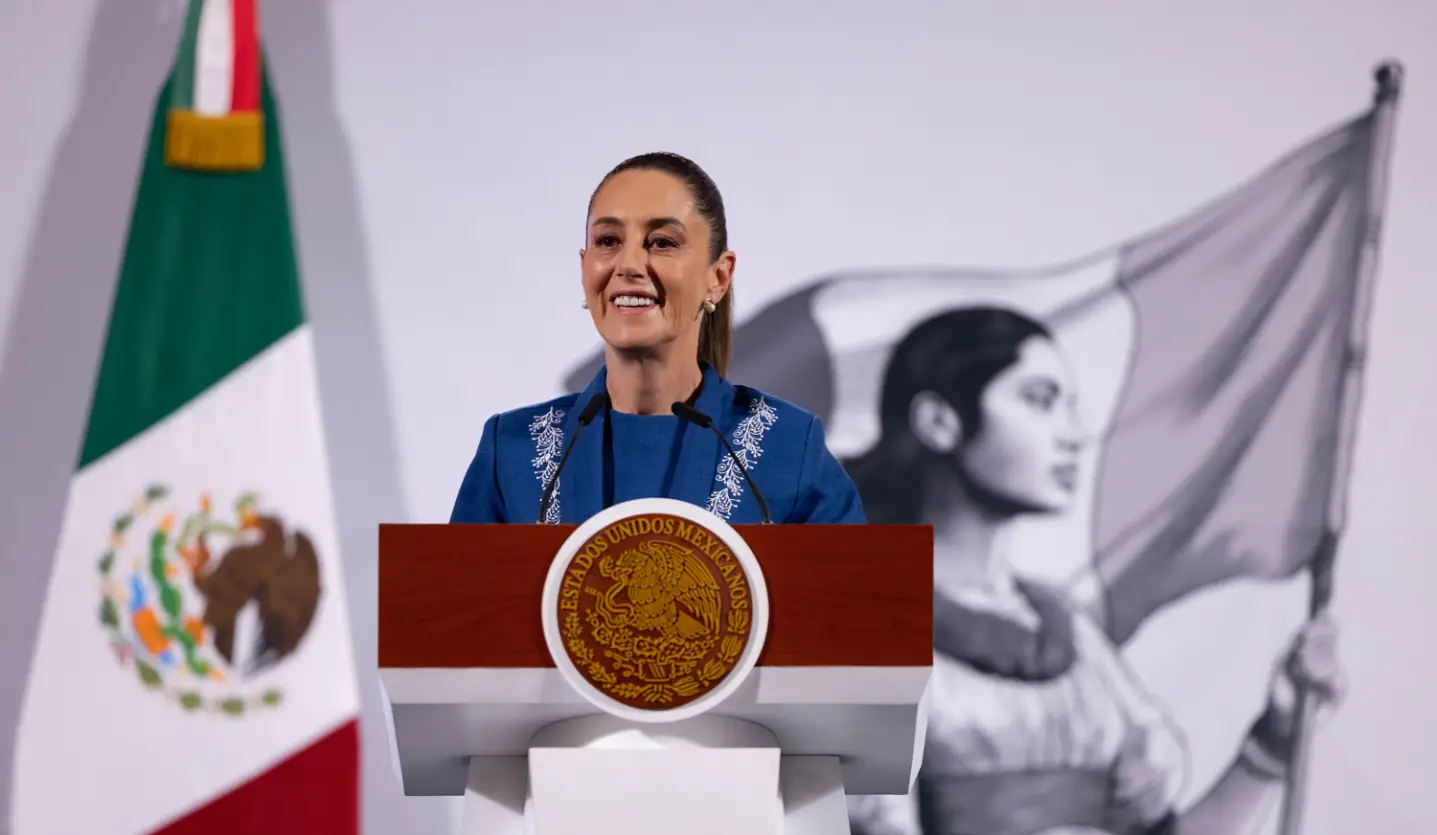In Mexico, sovereignty is defended in press conferences, but it is also eroded in the silences of power.
Thus, while President Claudia Sheinbaum speaks of “cooperation with the United States under respect for our sovereignty,” Ismael El Mayo Zambada—an invisible figure to the State, unlike what he represents—puts his own stamp from the Brooklyn Court of Justice. The longest-standing leader of the Sinaloa Cartel until his kidnapping and extradition reappeared with statements that, more than confessions, are reminders of entrenched power.
His mere word—spoken in the shadows, never under the spotlight—carries as much media and symbolic weight as that of a sitting president. While Sheinbaum insists that relations with Washington have clear limits, El Mayo sends a message between the lines: what he represents continues to set the course.
The paradox is brutal. The president speaks of sovereignty in the face of the United States, but in practice, the Mexican government treads carefully. The DEA continues investigating, the Treasury Department freezes accounts, and federal prosecutors wait for the right piece to expose complicities. Mexico cooperates, yes, but only as far as internal political balance allows.
The case of Genaro García Luna, former Secretary of Public Security under Felipe Calderón’s government (2006–2012) and now serving a sentence in the United States, left an important lesson: Washington can dismantle entire narratives if it decides to put a Mexican official on trial.
That is why, when 55 cartel leaders are extradited with files that brush against active politicians—especially from Morena—the rhetoric of mutual respect fades. The red line is clear: do not touch the narco-politicians allied with the regime, at least not until the White House demands it.
But sovereignty, that oft-repeated word, looks increasingly worn out. In the northern and southern territories, in border cities, and in Pacific communities, it is not the federal government that decides, but organized crime.
In Washington, case files on Mexico are used as bargaining chips in migration and trade negotiations. Thus, the official discourse on sovereignty remains a slogan that cannot conceal either foreign interference or the vacuum of power.
The statements of El Mayo and Sheinbaum, viewed in parallel, outline an uncomfortable truth: in Mexico, sovereignty is not in the National Palace but divided among three forces.
The first is the Mexican State, which speaks with a diplomatic voice for its political clientele; the second is organized crime, which speaks from the shadows and openly sows terror; and the third is the United States, which does not need to say much because it accumulates information and uses it as a political weapon to exert pressure day after day, as appears to have been the case with Senator Marco Rubio’s visit to the National Palace.
On this board, Sheinbaum plays within narrow margins of political maneuver. She can repeat insistently that cooperation with Washington has limits, but she knows those limits shift with pressure from the White House.
El Mayo Zambada, on the other hand, does not need to make clarifications: with just a few words he makes clear that this parallel power is still there, as present and active as the limitations of the Mexican State itself.
And so, Mexican sovereignty has become a field of shadows: proclaimed in the repetitive discourse of the National Palace, disputed in territories controlled by cartels that know where their strength lies, and conditioned by the halls of the White House, security agencies, media outlets, and U.S. courts.
President Sheinbaum does not stray from her advisors’ script and proclaims, sometimes with vehemence and sometimes with tribulation, the defense of national sovereignty. She maintains López Obrador’s discourse of “mutual respect” and “non-intervention,” but she knows her margin of political maneuver is narrow.
For now, Washington does not need to impose military force; it is enough to hint at open cases against politicians for Sheinbaum to yield on U.S. interests, and in response, the government adjusts its narrative to avoid storms.
El Mayo symbolically represents the other shadow. It is known that he remains a power player, and he says so when he declares before the Brooklyn court that throughout his long career he gave money to “police, soldiers, and politicians” until his kidnapping and extradition.
Let us remember that he even had a prosecutor from Sinaloa on his security detail. This shadow of crime not only covers entire territories but also spheres of power where narco-politicians lurk—hybrid figures who answer neither to the ruling party nor to the government, but to the funding and protection of the cartels.
And so, when President Sheinbaum speaks of sovereignty, that shadow seeps in. As Rubén Rocha, governor of Sinaloa, bluntly declared in an off-the-record interview with journalist Salvador García Soto: “Let’s not kid ourselves. Here everyone knows how things work. I went and spoke with them… I went to ask for their support.”
Finally, as we said, the United States does not need to deploy military forces on Mexican soil to set limits: its courts are enough. This shadow operates as a permanent reminder: the Mexican government may speak of sovereignty, but U.S. justice reserves the right to expose what is kept silent in Mexico to preserve balance.
The shadows overlap, and Mexican sovereignty is no longer a clear light but a half-light. The State sustains itself on a worn-out discourse, crime on territorial control, and the United States on judicial files. And there, in the middle of shadows that dialogue, clash, and make deals, citizens are trapped.
In short, for now Mexico does not live under full sovereignty but in fields of shadows where everyone hides, everyone protects one another, and everyone, in silence, needs each other.
*Machine translation, proofread by Ricardo Aceves.













